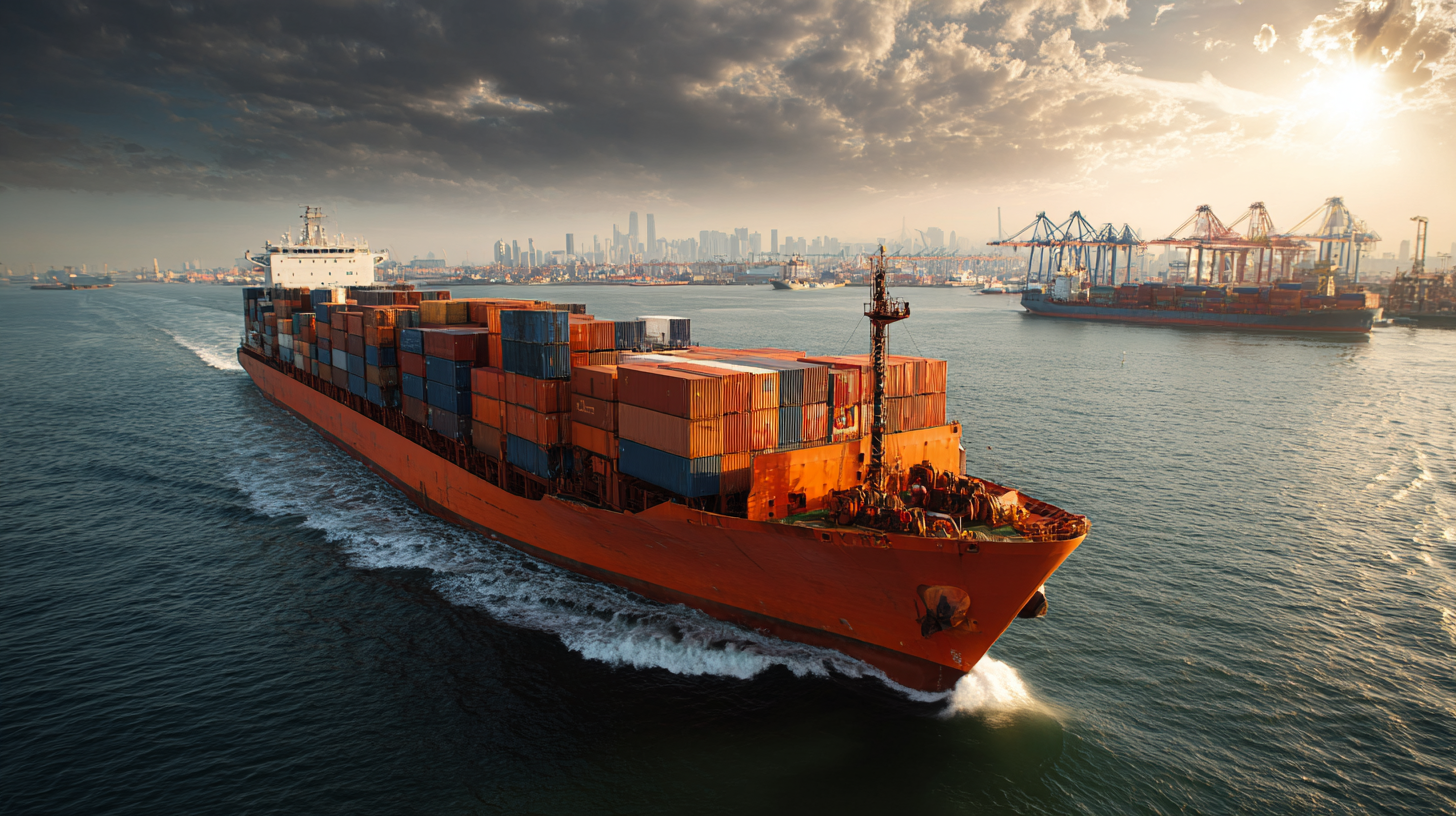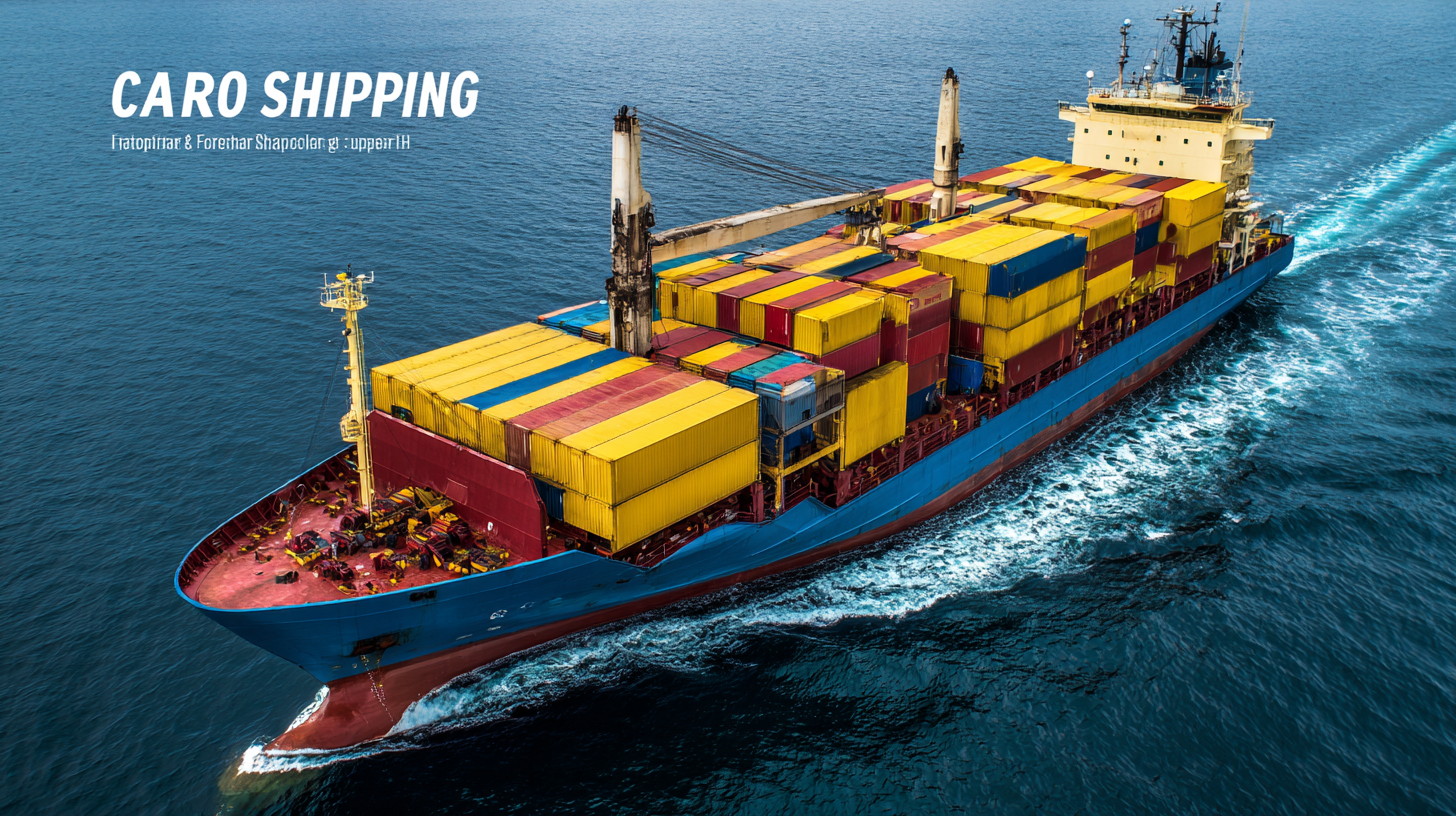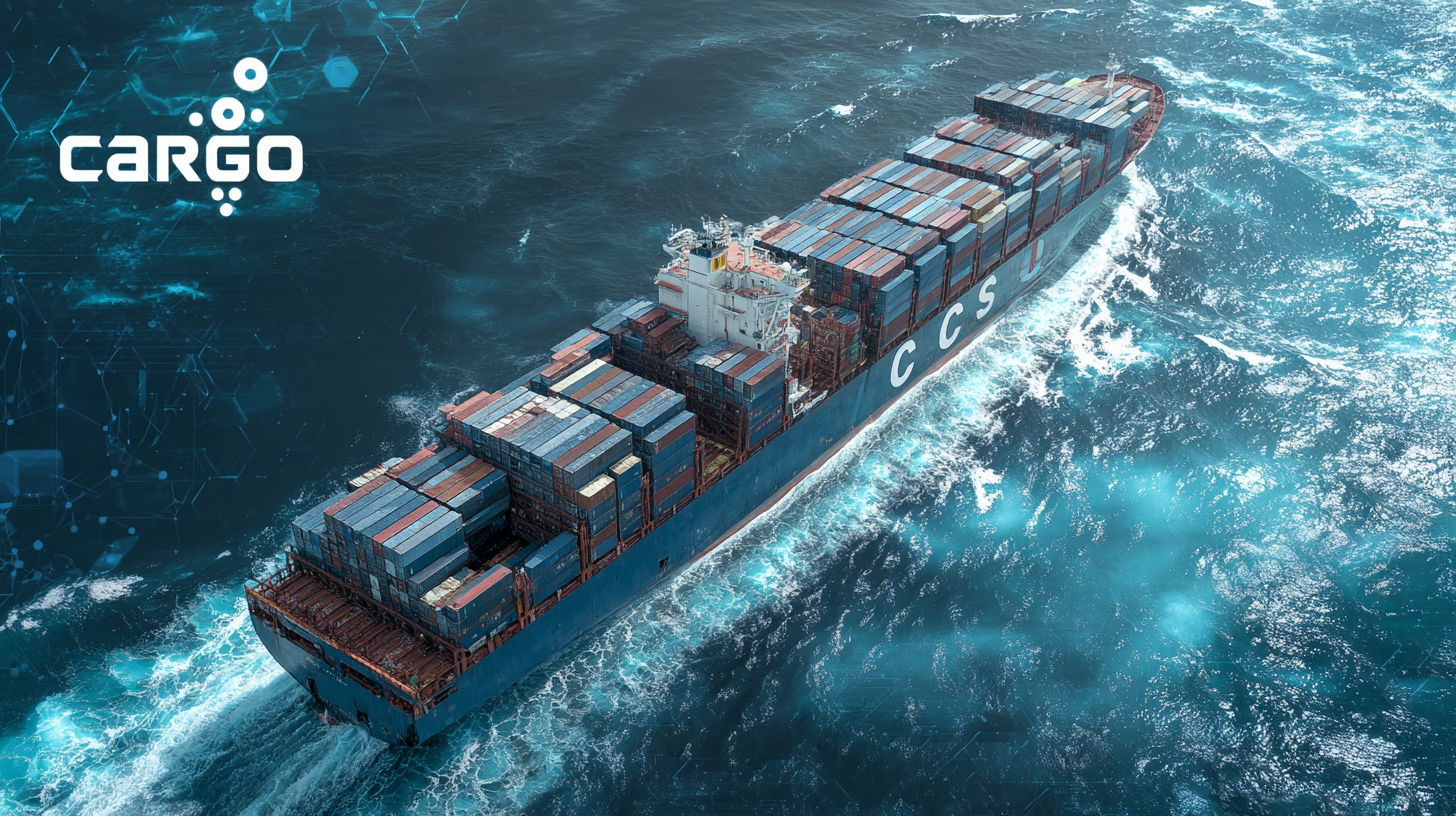As the global economy continues to evolve, the cargo shipping industry is poised for significant transformations by 2025. According to a recent report from the International Maritime Organization (IMO), the demand for cargo shipping is projected to increase by 3.5% annually, driven by the rise of e-commerce and international trade. This surge necessitates the adoption of innovative cargo shipping strategies to enhance efficiency and reduce costs. Moreover, McKinsey's analysis highlights that companies utilizing advanced technologies in their logistics processes can achieve up to a 20% improvement in delivery speed and 15% reduction in operational costs. As procurement leaders prepare for these industry shifts, understanding emerging trends in cargo shipping will be crucial for securing competitive advantages in a rapidly changing market. This blog will delve into the key strategies that will shape cargo shipping practices and ensure global procurement success in the coming years.

As we look towards 2025, emerging technologies are set to fundamentally transform cargo shipping strategies, enhancing efficiency and transparency across the supply chain. One of the standout advancements is the integration of Internet of Things (IoT) devices, which will allow real-time tracking of shipments. This technology not only ensures better visibility for shippers but also facilitates proactive decision-making, reducing delays and minimizing losses. The utilization of smart sensors can monitor cargo conditions, providing unprecedented insight into temperature, humidity, and other critical factors that impact the integrity of goods in transit.
In addition to IoT, the rise of artificial intelligence (AI) and machine learning will play a pivotal role in optimizing shipping routes and reducing operational costs. These intelligent systems can analyze vast amounts of data to predict potential disruptions and suggest alternative routes, ultimately enhancing reliability in global procurement. Furthermore, blockchain technology will establish a secure and transparent record of transactions, which is essential for mitigating fraud and improving trust among stakeholders. As these technologies evolve, companies must adapt their strategies to leverage these innovations, positioning themselves for success in the competitive landscape of cargo shipping by 2025.
The cargo shipping industry is on the brink of a transformative shift towards sustainability, with key practices emerging as critical components of responsible global procurement. According to a report by the International Maritime Organization (IMO), shipping accounts for approximately 2.5% of global greenhouse gas emissions, a figure that underscores the urgent need for sustainable strategies. By adopting practices such as optimizing route planning and investing in fuel-efficient vessels, companies can significantly reduce their carbon footprint. Moreover, the adoption of alternative fuels, such as liquefied natural gas (LNG) and biofuels, is projected to increase, as an estimated 30% of the global fleet is expected to operate on these cleaner energy sources by 2030.
In tandem with technological advancements, transparency in supply chains has become paramount. A survey conducted by the Global Logistics Emissions Council (GLEC) indicates that 68% of organizations prioritize sustainability in their procurement processes. Implementing rigorous supplier assessments and sustainability certifications can help ensure that partners adhere to responsible practices. Furthermore, collaboration within the industry, such as sharing best practices and resources, is essential to achieving common sustainability goals and enhancing overall procurement efficiency. The shift towards these sustainability practices not only addresses environmental concerns but also contributes to a competitive advantage in an increasingly eco-conscious market.

The logistics industry is currently witnessing a significant transformation due to advancements in cargo tracking systems. As we approach 2025, the emphasis on supply chain efficiency is more critical than ever. According to a recent report by Gartner, companies that adopt advanced tracking technologies can achieve up to a 30% reduction in shipment delays. These systems utilize real-time data analytics and IoT-enabled devices to provide visibility throughout the shipping process, allowing businesses to respond swiftly to any disruptions.

Moreover, a study by McKinsey highlights that organizations employing high-tech tracking solutions can improve operational efficiency by 20-25%. By integrating GPS tracking, RFID technology, and blockchain, firms can ensure better inventory management and enhance collaboration among stakeholders in the supply chain. This level of transparency not only drives down costs but also boosts customer satisfaction by providing accurate delivery timelines and updates. As global procurement strategies evolve, the role of advanced cargo tracking systems will be pivotal in shaping the future of efficient supply chains.
As the global cargo shipping landscape evolves, strategic partnerships and alliances are becoming imperative for achieving competitive advantage. According to a recent report by the World Trade Organization, global merchandise trade volume is expected to grow by 4% annually through 2025. To navigate this expanding market, companies must leverage partnerships that enhance operational efficiency and promote shared resources. Collaborations among logistics firms can diminish transportation bottlenecks and improve service delivery, which is crucial for meeting rising consumer demands.
Moreover, data from the International Maritime Organization suggests that nearly 90% of world trade is still carried by sea, underscoring the importance of optimizing shipping strategies. By forming strategic alliances, businesses can tap into diverse geographic markets, reduce costs, and enhance sustainability initiatives. These collaborations allow for innovation in shipping practices, such as integrating advanced analytics and automation, which will ultimately boost supply chain resilience in an increasingly interconnected world. In 2025, the firms that excel will be those that recognize the power of strategic partnerships in overcoming the challenges posed by an evolving global procurement landscape.
Navigating the evolving landscape of international cargo shipping in 2025 demands a keen awareness of regulatory changes. As global procurement strategies become increasingly intricate, businesses must stay informed about new compliance requirements that could impact their shipping operations. This includes adapting to stricter environmental regulations, safety standards, and trade tariffs. Companies that proactively identify and understand these changes will be better positioned to mitigate risks and enhance their supply chain efficiency.
**Tip:** Regularly consult with legal and logistics experts to scan for new regulations that may impact your shipping processes. This proactive approach can help you remain compliant and avoid costly penalties.
In addition, fostering relationships with regulatory bodies can provide insights into upcoming changes and industry trends. Developing a strong communication channel can be crucial for anticipating shifts in the regulatory environment, allowing businesses to adapt their strategies accordingly.
**Tip:** Join industry associations and attend webinars focused on cargo shipping regulations to keep your team updated. Engaging with fellow professionals can offer valuable perspectives and best practices.
| Shipping Strategy | Impact on Cost (%) | Time Efficiency (Days) | Regulatory Compliance Level (%) | Sustainability Score (1-10) |
|---|---|---|---|---|
| Consolidated Shipping | 15 | 10 | 90 | 7 |
| Digital Freight Forwarding | 10 | 8 | 85 | 8 |
| Automated Cargo Tracking | 5 | 7 | 95 | 9 |
| Green Shipping Initiatives | 20 | 12 | 80 | 10 |
| Blockchain in Logistics | 15 | 9 | 92 | 8 |






